Related Research Articles

The non-cooperation movement was a political campaign launched on 4 September 1920, by Mahatma Gandhi to have Indians revoke their cooperation from the British government, with the aim of persuading them to grant self-governance.
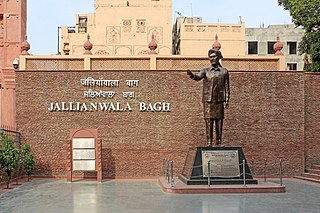
Jallianwala Bagh is a historic garden and memorial of national importance close to the Golden Temple complex in Amritsar, Punjab, India, preserved in the memory of those wounded and killed in the Jallianwala Bagh Massacre that took place on the site on the festival of Baisakhi Day, 13 April 1919. The 7-acre (28,000 m2) site houses a museum, gallery and several memorial structures. It is managed by the Jallianwala Bagh National Memorial Trust, and was renovated between 2019 and 2021.
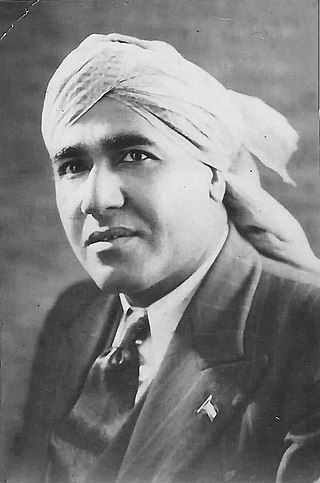
Udham Singh was an Indian revolutionary belonging to Ghadar Party and HSRA, best known for assassinating Michael O'Dwyer, the former lieutenant governor of the Punjab in India, on 13 March 1940. The assassination was done in revenge for the Jallianwala Bagh massacre in Amritsar in 1919, for which O'Dwyer was responsible and of which Singh himself was a survivor. Singh was subsequently tried and convicted of murder and hanged in July 1940. While in custody, he used the name 'Ram Mohammad Singh Azad', which represents the three major religions in India and his anti-colonial sentiment.

Saifuddin Kitchlew was an Indian independence activist, barrister, politician and later a leader of the peace movement. A member of Indian National Congress, he first became Punjab Provincial Congress Committee head and later the General Secretary of the All India Congress Committee in 1924. He is most remembered for the protests in Punjab after the implementation of Rowlatt Act in March 1919, after which on 10 April, he and another leader Satyapal, were secretly sent to Dharamsala. A public protest rally against their arrest and that of Gandhi, on 13 April 1919 at Jallianwala Bagh, Amritsar, led to the infamous Jallianwala Bagh massacre. He was also a founding member of Jamia Millia Islamia. He was awarded the Stalin Peace Prize in 1952.

Sir Michael Francis O'Dwyer was an Irish colonial officer in the Indian Civil Service (ICS) and later the Lieutenant Governor of Punjab, British India, between 1913 and 1919.

The Qissa Khwani massacre in Peshawar, North-West Frontier Province, British India on 23 April 1930 was a armoured vehicle-ramming attack and mass shooting of the unarmed civilian freedom fighters by the British colonial troops, which consequently became one of the defining moments of the independence movement in British India.
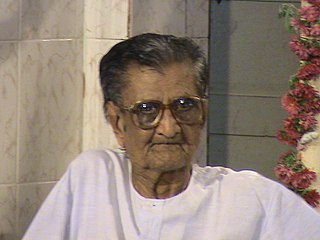
Pandit Sudhakar Chaturvedi was an Indian independence activist, Vedic scholar, Indologist, and claimed supercentenarian. At the claimed age of 122 years, 313 days, some Indian newspapers reported him as the oldest Indian ever.

The Jallianwala Bagh massacre, also known as the Amritsar massacre, took place on 13 April 1919. A large, peaceful crowd had gathered at the Jallianwala Bagh in Amritsar, Punjab, British India, during annual Baishakhi fair, to protest against the Rowlatt Act and the arrest of pro-independence activists Dr. Saifuddin Kitchlew and Dr. Satya Pal. In response to the public gathering, the temporary brigadier general R. E. H. Dyer, surrounded the people with his Gurkha and Sikh infantry regiments of the British Indian Army. The Jallianwala Bagh could only be exited on one side, as its other three sides were enclosed by buildings. After blocking the exit with his troops, he ordered them to shoot at the crowd, continuing to fire even as the protestors tried to flee. The troops kept on firing until their ammunition was exhausted. Estimates of those killed vary from 379 to 1,500 or more people and over 1,200 other people were injured of whom 192 were seriously injured. Britain has never formally apologised for the massacre but expressed "deep regret" in 2019.
In India, Flag Satyagraha is a campaign of peaceful civil disobedience during the Indian independence movement that focused on exercising the right and freedom to hoist the nationalist flag and challenge the legitimacy of the British Rule in India through the defiance of laws prohibiting the hoisting of nationalist flags and restricting civil freedoms. Flag Satyagrahas were conducted most notably in the city of Jabalpur and Nagpur in 1923 but also in many other parts of India.
The Takkar massacre was a massacre of non-violent Pashtun protesters committed by the British Indian Army in Mardan, British India on 28 May 1930, just a month after the Qissa Khwani massacre in Peshawar.
The Spin Tangi massacre or Hathikhel massacre refers to the killing of about 80 non-violent Pashtun protesters by the Frontier Constabulary and the British Indian Army on 24 August 1930 at the Spin Tangi village near Domel, in the Bannu district of the North-West Frontier Province of British India. This massacre was committed just three months after the Takkar massacre in Mardan and four months after the Qissa Khwani massacre in Peshawar.
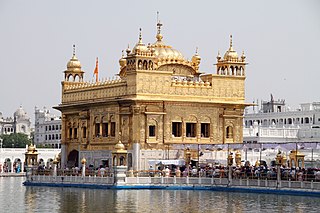
The state of Punjab is renowned for its cuisine, culture and history. Punjab has a vast public transportation and communication network.
The Hindu Sena, is an Indian right-wing Hindu nationalist organization, founded on 10 August 2011 by Vishnu Gupta, who is also its current leader.
On 10 July 2017, the first Monday of the month of Shraavana, 8 Hindu civilian pilgrims on the way from Amarnath Temple in Kashmir Valley, in the Indian state of Jammu and Kashmir, were killed in a terror attack. The pilgrims mostly belonged to the Indian state of Gujarat. Eight people were killed and at least 18 people were injured in the attack.
The Parkala Massacre was the killing of 22 Protestors on 2 September 1947, by the Nizam of Hyderabad's police and the Razakars in the town of Parkala. The massacre suppressed the popular movement for India to annex the Hyderabad State.
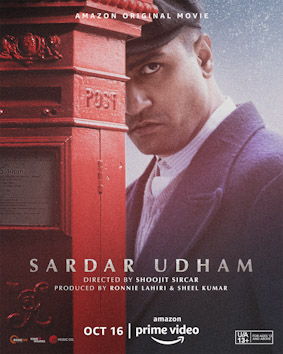
Sardar Udham is a 2021 Indian Hindi-Punjabi-English language biographical historical drama film directed by Shoojit Sircar, and produced by Rising Sun Films in collaboration with Kino Works. The screenplay is written by Shubhendu Bhattacharya and Ritesh Shah, with Bhattacharya also writing the story based on team research, and Shah also writing the dialogues, while playing a supporting role. Based on the life of Udham Singh, a freedom fighter from Punjab who assassinated Michael O'Dwyer in London to avenge the 1919 Jallianwala Bagh massacre in Amritsar, the film starred Vicky Kaushal in the title role, along with Shaun Scott, Stephen Hogan, Amol Parashar, Banita Sandhu and Kirsty Averton in supporting roles.
Hans Raj was an Indian youth, in Amritsar, British India, who in June 1919 became an approver for the British government when he gave evidence for the Crown at the Amritsar Conspiracy Case Trial in which he identified his fellow Indian revolutionaries, buying his own freedom in return.
The Mangarh massacre occurred on 17 November 1913, when British and Indian troops attacked the stronghold of Govindgiri Banjara at the end of the Bhil Revolt. It occurred on a hillock in the Mangarh Hills of Rajasthan. There are no accurate figures for the number of Bhil, Banjara who were killed, but estimates range from "several Bhils died" to the oral tradition that 1,500 Banjara tribals were killed.
The Munshiganj Raebareli massacre was a massacre perpetrated by the Indian Imperial Police on 7 January 1921 at Munshiganj, Raebareli, India. The official death toll as per British historians was minimal, while other estimates put the death toll in the hundreds.
References
- 1 2 Newsfact, India (20 April 2021). "Vidurashwatha Massacre, the Forgotten Jallianwala Bagh of South India". Hindustan Times. Hindustan Times. Retrieved 18 August 2022.
- 1 2 Bharadhwaj, Aditya (14 August 2022). "Vidurashwatha firing changed course of freedom struggle in Mysore". The Hindu newspaper. The Hindu. Retrieved 18 August 2022.